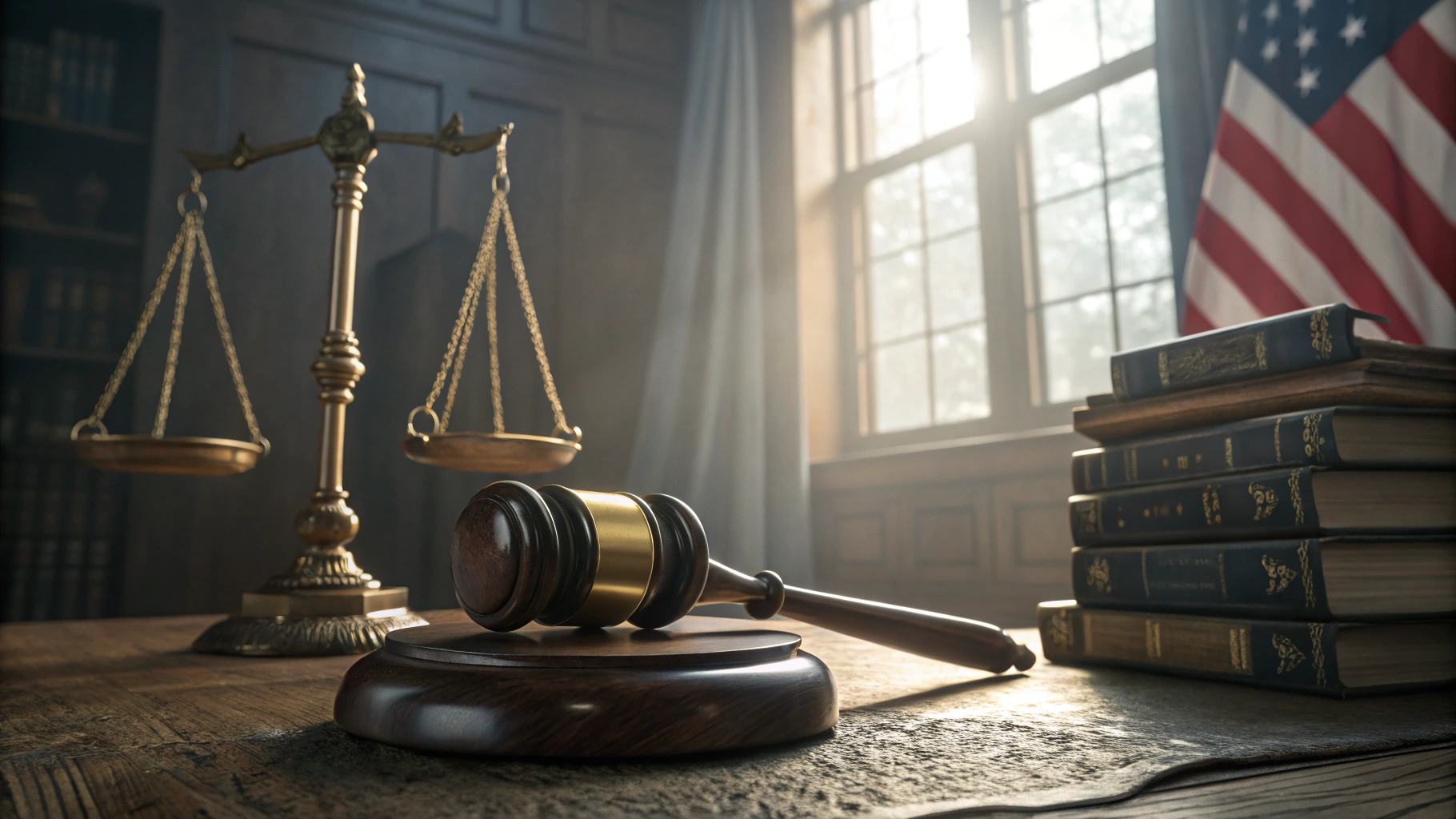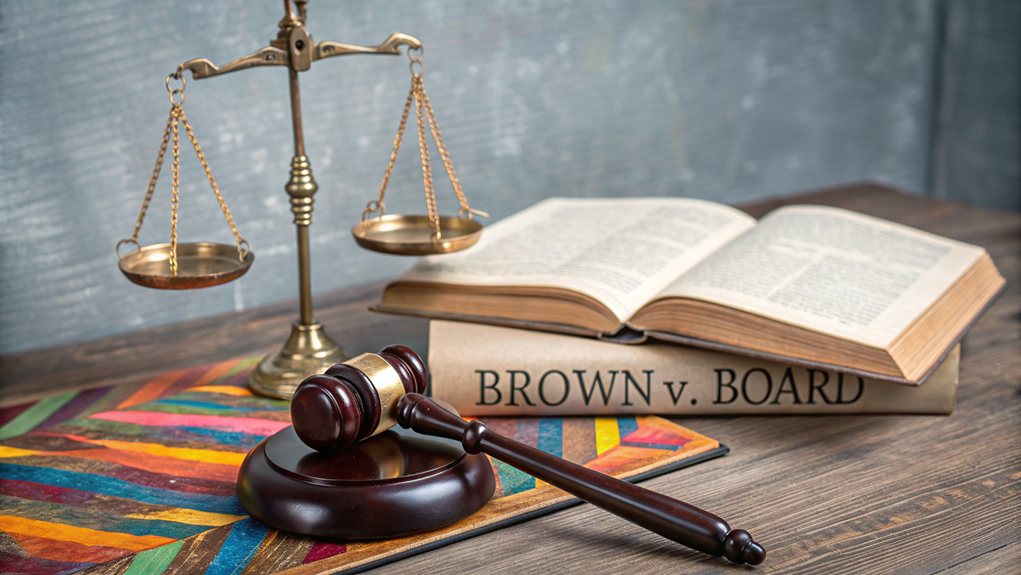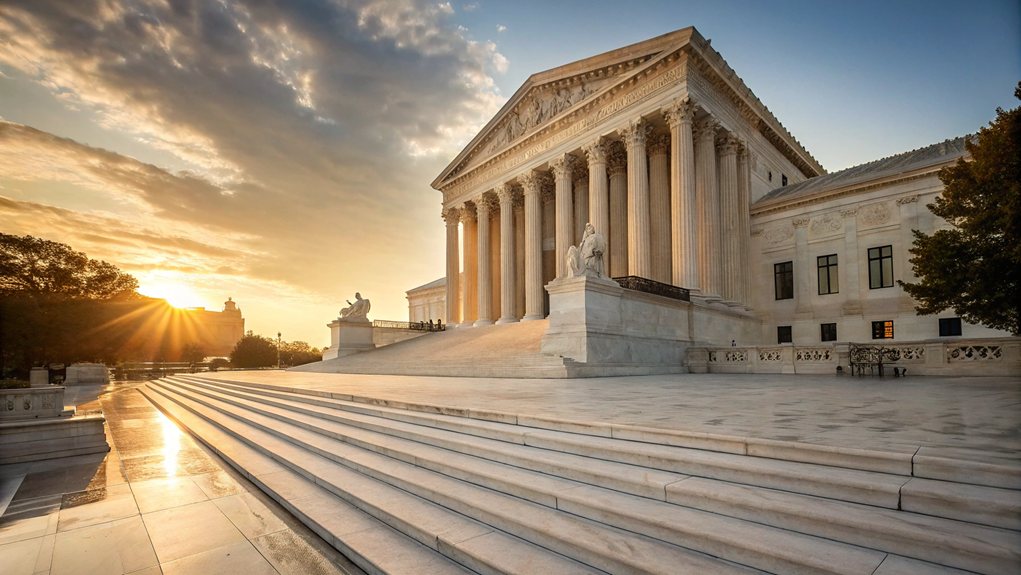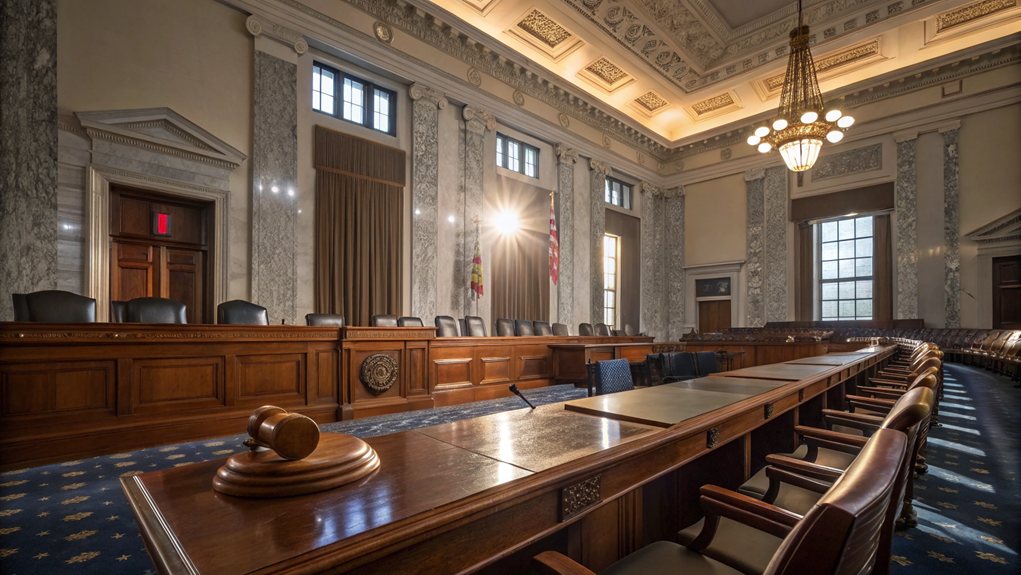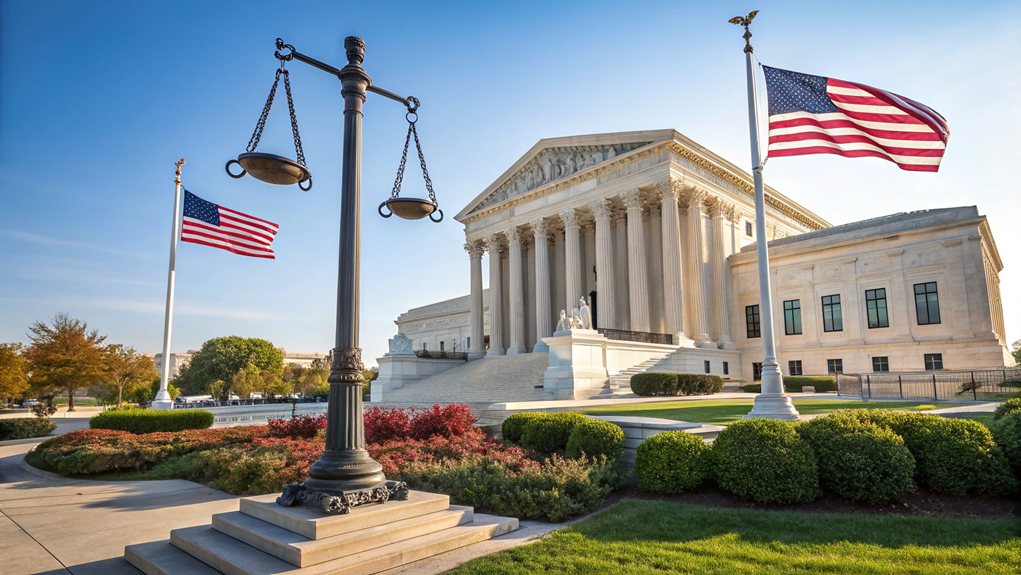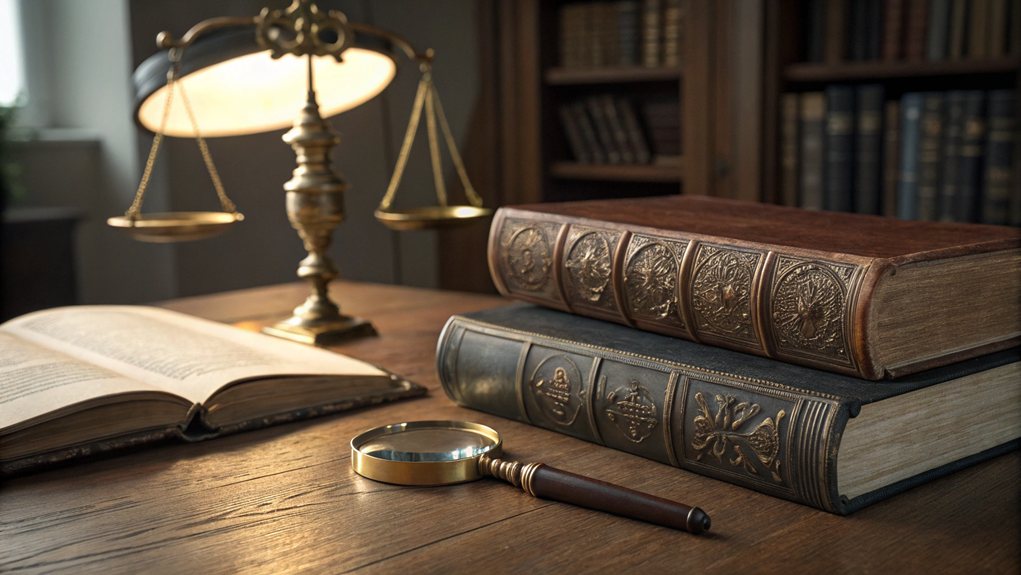Federal courts interpret and apply the Constitution by checking laws and actions against constitutional standards. They have this nifty tool called judicial review, which helps keep the other branches in line. Independence? Yeah, that's vital—they aren't swayed by political nonsense. Judges serve for life, safeguarding their impartiality. This approach creates binding decisions that shape our legal landscape. And if you think that's all there is, stay tuned. There's more to uncover about how this system works.
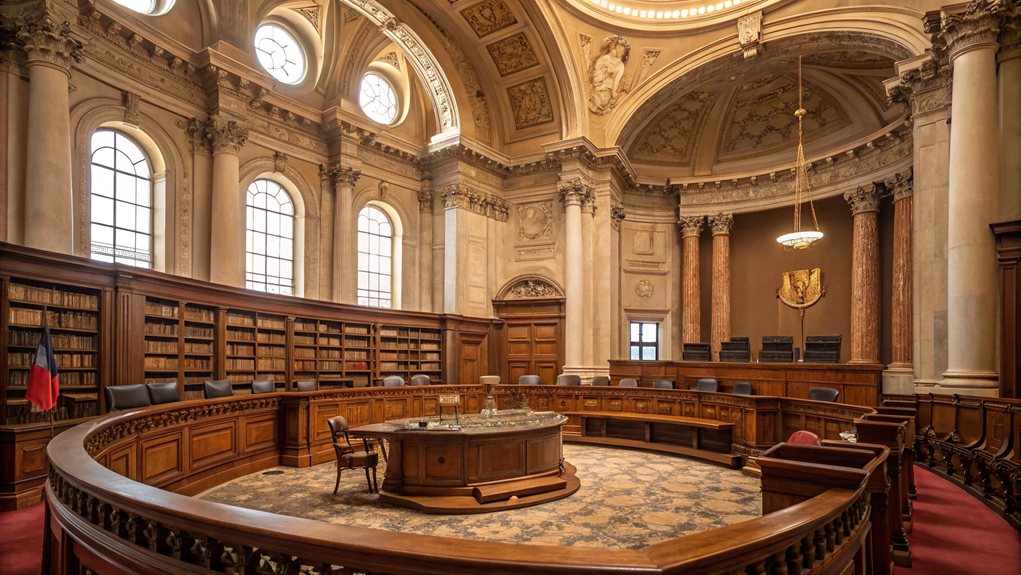
Federal courts are the backbone of the American legal system. Without them, chaos would reign, and who wants that? The U.S. Constitution, in Article III, sets up the judicial branch as the ultimate authority on federal law. It's a big deal. Federal courts are tasked with interpreting the Constitution, and they don't take that lightly. They review laws, executive actions, and, if necessary, declare them unconstitutional. Yes, the Supreme Court has that kind of power. It's the ultimate check on the other branches of government. A key aspect of this role is judicial review, which allows the courts to ensure that laws align with constitutional principles.
Speaking of the Supreme Court, it's the highest tribunal in the land. When they speak, everyone listens. Their decisions create binding precedents for lower courts, shaping the law for years, even decades. They use various methods to interpret the Constitution—textualism, original meaning, or just good old-fashioned judicial precedent. Sometimes they even treat the Constitution like a living document, adjusting interpretations to fit modern times. Welcome to the 21st century, folks! The Court's role as the guardian and interpreter of the Constitution ensures that it remains relevant and applicable to contemporary issues.
The Supreme Court shapes law for generations, interpreting the Constitution through various lenses, adapting to modern needs.
Now, let's not forget about Congress. They have a hand in this too. They can create lower federal courts and determine their jurisdiction, which is a fancy way of saying they control the judicial landscape. Congress's authority to create inferior courts allows them to adapt the judicial system to the needs of the country.
But hold your horses! The President nominates judges, and the Senate gets to play judge, jury, and executioner during confirmation. It's a whole process. And if judges misbehave? Congress can impeach them. Talk about accountability!
Over on the executive side, the President and their administration keep the wheels turning. They appoint judges and enforce court decisions. The Department of Justice? Yeah, they're usually the ones in court, representing the government.
In the end, federal judges enjoy life tenure and salary protections. This keeps them independent, away from political games. Because let's face it: impartiality is essential when interpreting the Constitution. Federal courts matter. A lot.
Frequently Asked Questions
How Do Federal Judges Decide Which Cases to Hear?
Federal judges decide which cases to hear based on a few key factors. They look for constitutional relevance—if it's a hot-button issue, they might lean in.
Jurisdictional requirements matter too; no federal question, no case, folks.
Then there's standing—if the plaintiff isn't directly affected, forget it.
And let's not overlook the Supreme Court's selective hearing; it's like choosing the best Netflix shows. Only the juiciest cases make the cut.
What Role Do Precedents Play in Court Decisions?
Precedents play an essential role in court decisions. They're like the rulebook for judges.
Need to decide? Look at past cases. It's about consistency, folks. Judges don't want to look like they're winging it.
Sure, they can overrule old rulings, but that's rare. They also evolve as society changes.
Can Citizens Influence Federal Court Interpretations?
Citizens can totally influence federal court interpretations, just not in a direct way.
They serve as jurors, attend trials, and even chat about legal issues online. Public opinion? Yeah, it matters. It can sway lawmakers and advocacy groups to challenge existing interpretations.
But make no mistake, the judges are the ones calling the shots. They stick to legal precedent.
How Often Do Supreme Court Justices Change Their Interpretations?
Supreme Court justices rarely change their interpretations. Like, really rarely.
Constitutional shifts need major rulings or amendments—talk about a slow process! Statutory interpretations? Those can change more often, especially with new laws popping up.
But here's the kicker: the Court's makeup plays a huge role. A conservative majority? Expect some significant shifts.
With fewer unanimous decisions lately, justices seem more divided than ever. Change is slow, but when it happens, it's a big deal.
What Happens if a Court Rules a Law Unconstitutional?
When a court declares a law unconstitutional, it's like hitting the big red "delete" button.
Poof! That law is gone—void from the start, like it never existed. No rights, no duties, nothing. People can't be punished for ignoring it.
Officers might even get slapped with civil liability for enforcing it. And good luck recovering any taxes paid under that law; it's a mixed bag.
Just remember: unconstitutional means, well, nonexistent.
